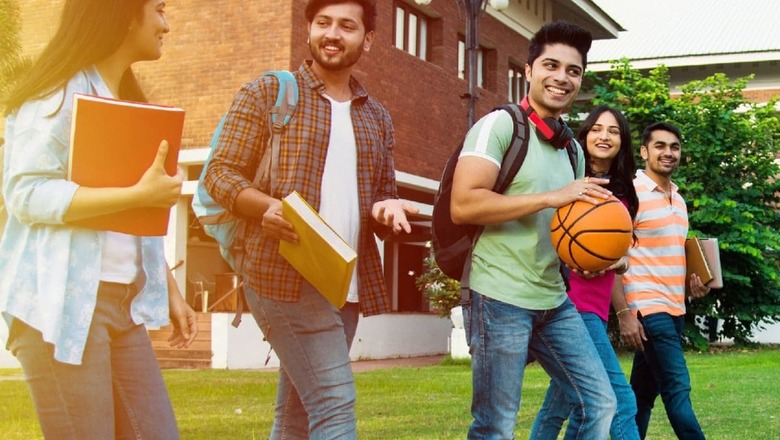
views
A flurry of technical developments in 2023 brought about a radical change in the educational scene not just in India but across the globe. Now that we have stepped into 2024, the convergence of technology and education has become ever more apparent with educational experts foreseeing developments that are transforming the way we learn and teach.
This year, the incorporation of new technologies into education such as Artificial Intelligence (AI), Machine Learning (ML), and Virtual and Augmented Reality (VR/AR) are expected to take the spotlight. Based on each learner’s unique progress and learning preferences, EdTech platforms use these technologies to develop customised learning plans.
According to Akshay Munjal, Founder & CEO of Hero Vired, “The rapid pace of technological advancement has created a dynamic job landscape, causing professionals to worry about potential job redundancy.” This has led to a significant focus on providing personalized learning experiences.
Munjal further highlights the adoption of the concept of nano-learning which breaks down complex topics into smaller modules, so learners can efficiently grasp and retain information. This approach offers flexibility, allowing learners to access short, targeted lessons at their convenience.
Prof.(Dr.) Rakesh Kumar Dwivedi from TMU Moradabad envisions adaptive technologies such as Augmented and Virtual Reality technologies to provide immersive learning experiences, bringing subjects to life and deepening understanding. “To improve understanding and retention, these immersive experiences will take students to historical events, virtual classrooms, or even simulated scientific experiments,” he said.
Administrative tasks are expected to be automated by AI, enabling teachers to focus on individualised instruction and timely feedback and support to weaker students, Prof. Dwivedi added.
Prof. Aarti Singh from FORE School of Management emphasises that AI algorithms tailor educational content, while VR and AR provide immersive experiences, making subjects come alive. “Educational platforms leveraged rewards, badges, and interactive challenges, turning learning into a dynamic and enjoyable adventure,” Singh stated. Additionally, the Gamification principles continue to engage students, and Blockchain technology ensures the security of academic credentials.
Joe Lumsden, Head of School at Stonehill International School in Bangalore, on the flip side, believes that “the education world will face a dilemma of whether to encourage student use of Generative AI in more creative, real-world assessment ‘performances’ or to retreat to a world of more traditional ‘impossible to cheat’ tests and quizzes due to the fear of lack of authenticity in student work.”
Kiran Dham, CEO of Globus Infocom Ltd, highlights the rise of hybrid learning, blending traditional classrooms with online education for flexibility and personalised experiences.“Language learning is set to see a surge with Digital Language Labs and Language learning software promoting and giving opportunities for Multilingualism,” Dham added.
On the other hand, Akash Sharma, Director of Admission and Outreach at Noida International University, predicts more robust technological integration, multidisciplinary education, and a greater emphasis on student well-being in 2024. He goes on to explain that “Mental health initiatives will be prioritised, expanding counselling services and fostering a supportive community for holistic student development.”
On similar lines, Nirvaan Birla, Founder, Birla Brainiacs adds, “Current education trends emphasize holistic development, prioritizing mental wellness for children. There’s a growing focus on personalized learning, tailoring education to individual needs regardless of gender, demographics, or financial status.”
There will also be a rise in community-focussed microschools this year, says Dr Prashant Bhalla, President, Manav Rachna Educational Institutions. “The traditional model of one-size-fits-all education might face increasing competition from smaller, community-focused microschools. These innovative learning spaces offer flexible schedules, individualized instruction, and a strong sense of belonging, catering to diverse student needs and fostering a more collaborative learning environment,” says he.
To sum it up, the game-changing surge of technology advancements that kicked off in 2023 is going to keep reinventing education not just in 2024, but for many more years to come.




















Comments
0 comment